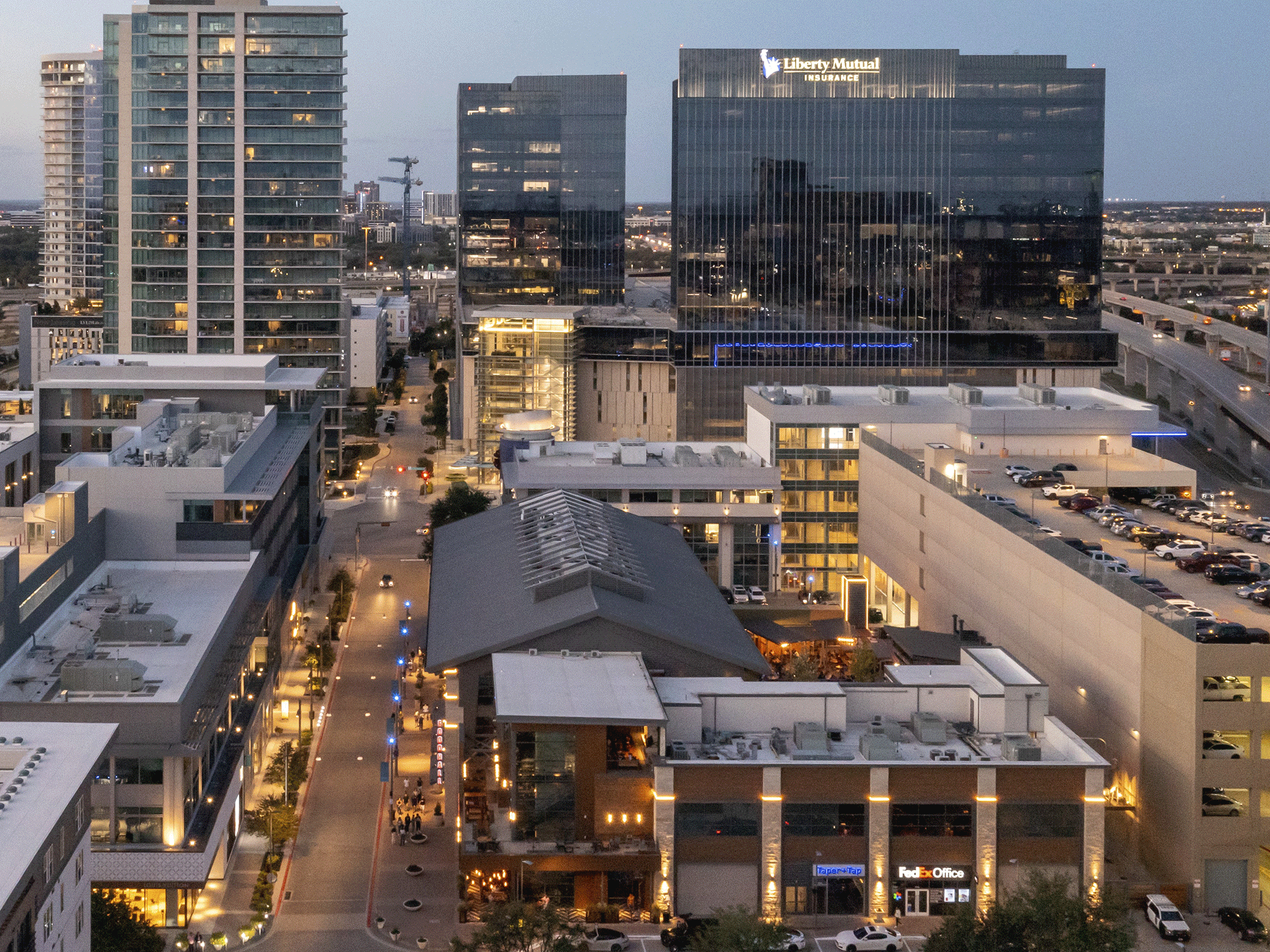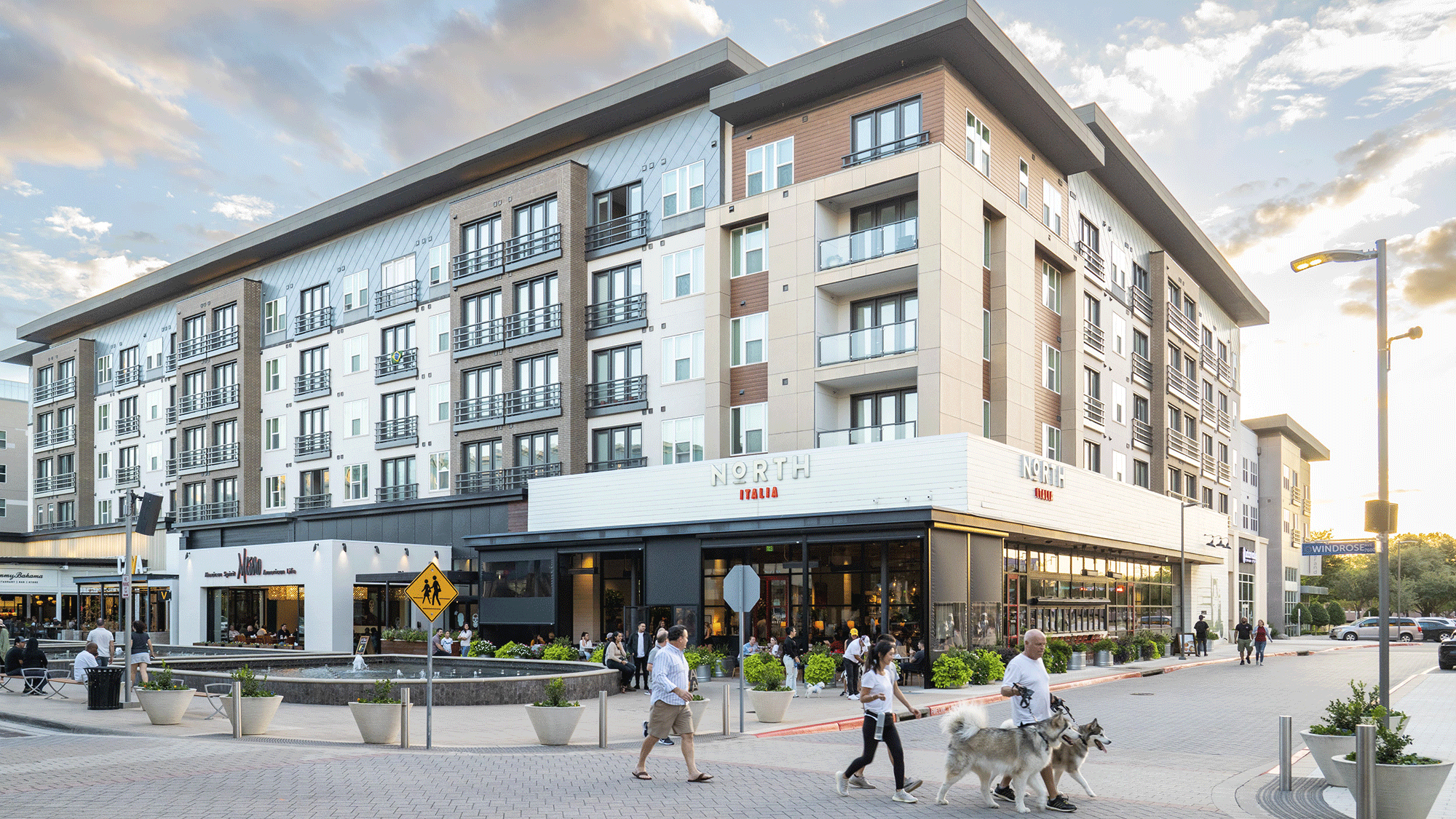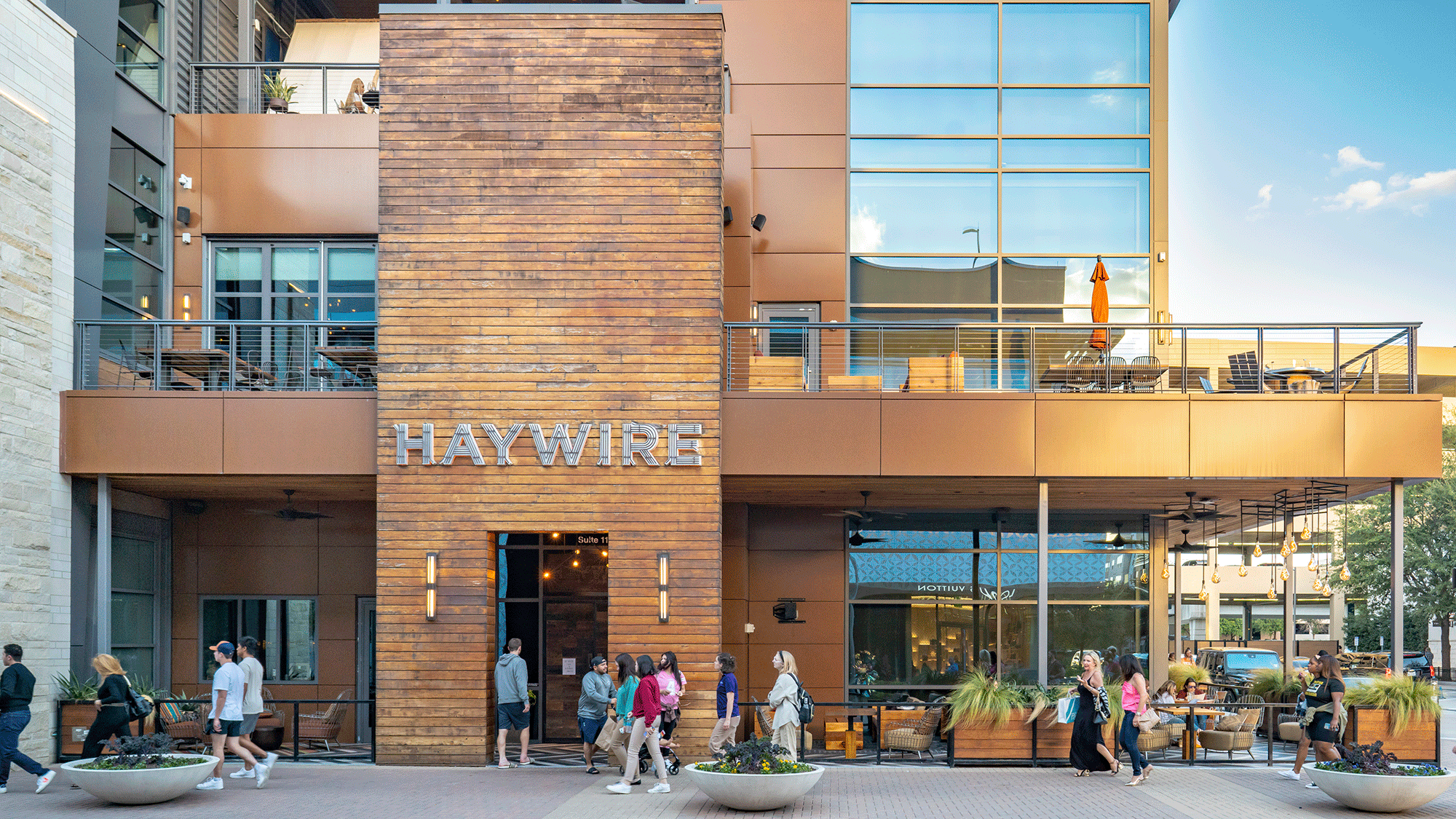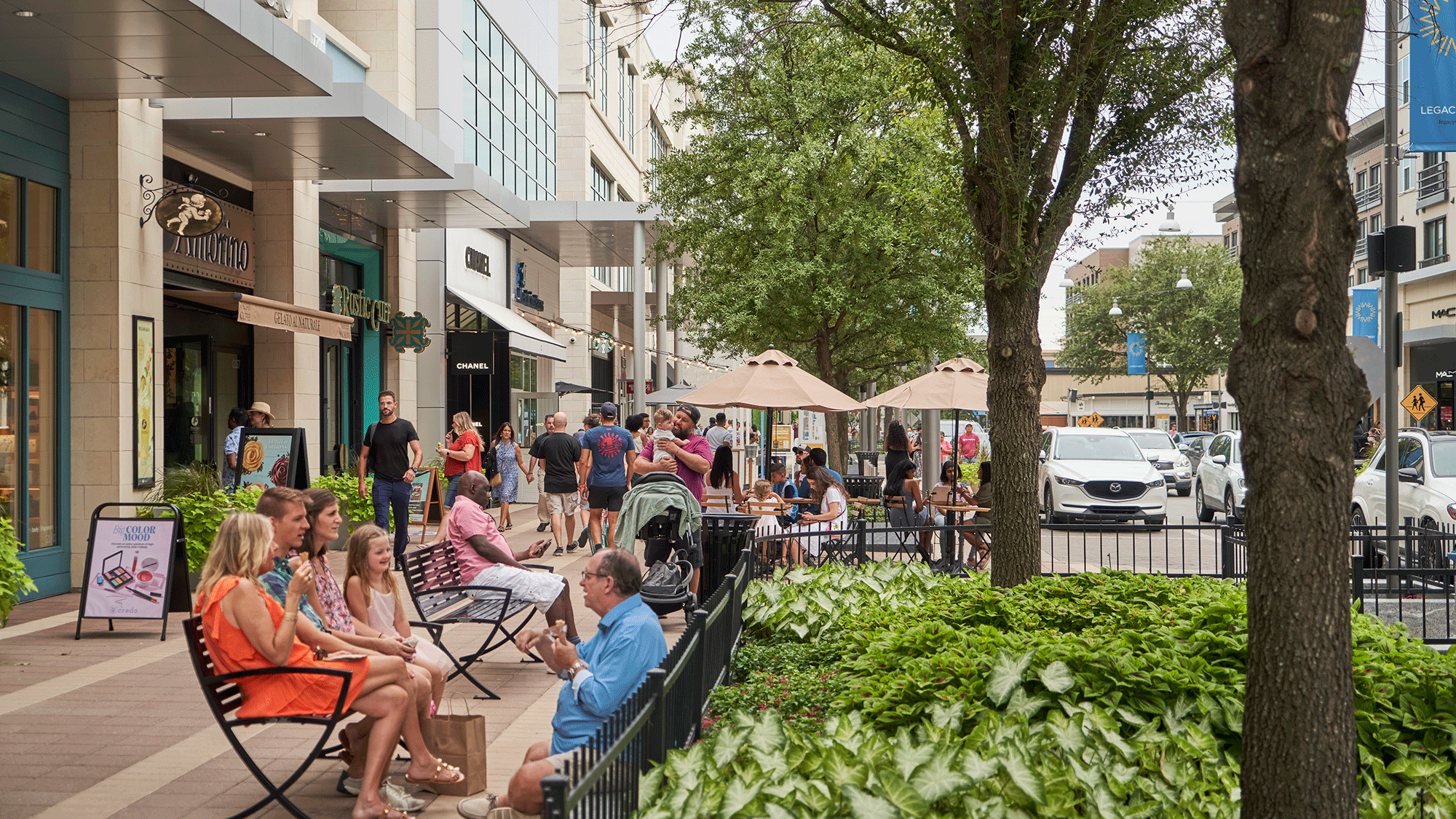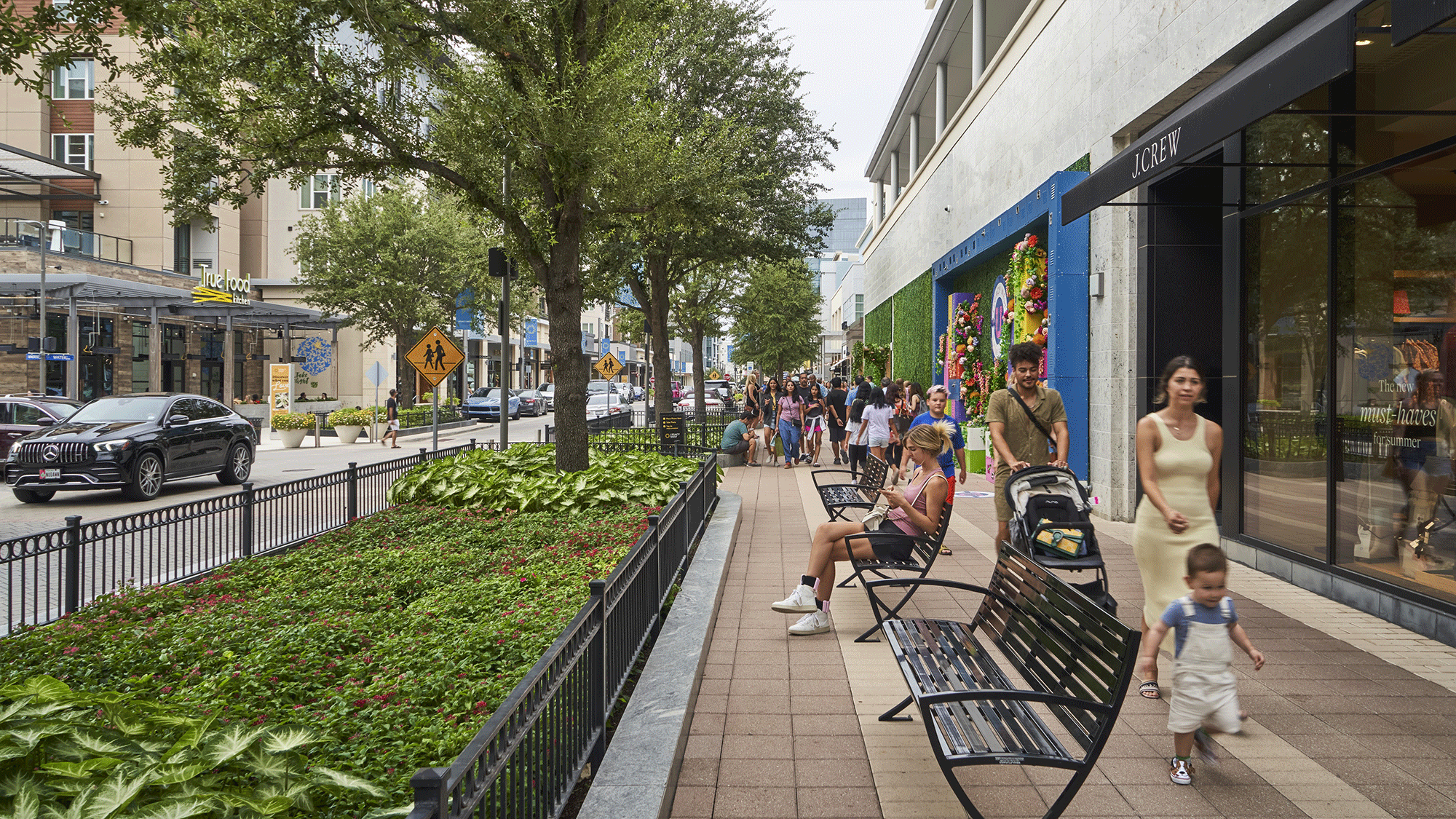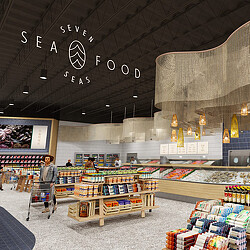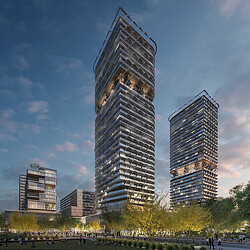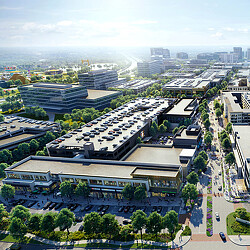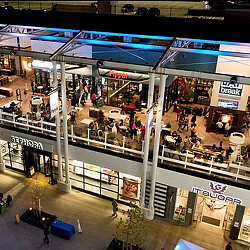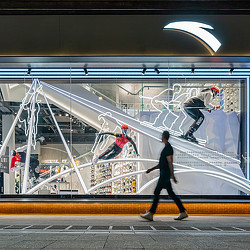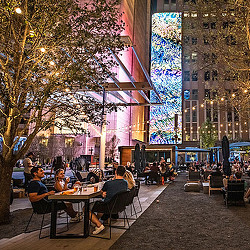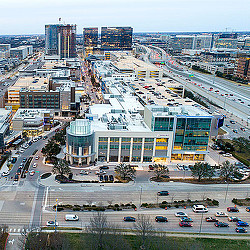What Two Mixed-Use Districts Reveal About Successful Retail and Placemaking
Lessons from Legacy West and Field West in Texas reinforce the value of adaptability and placemaking for retail and mixed-use developments.
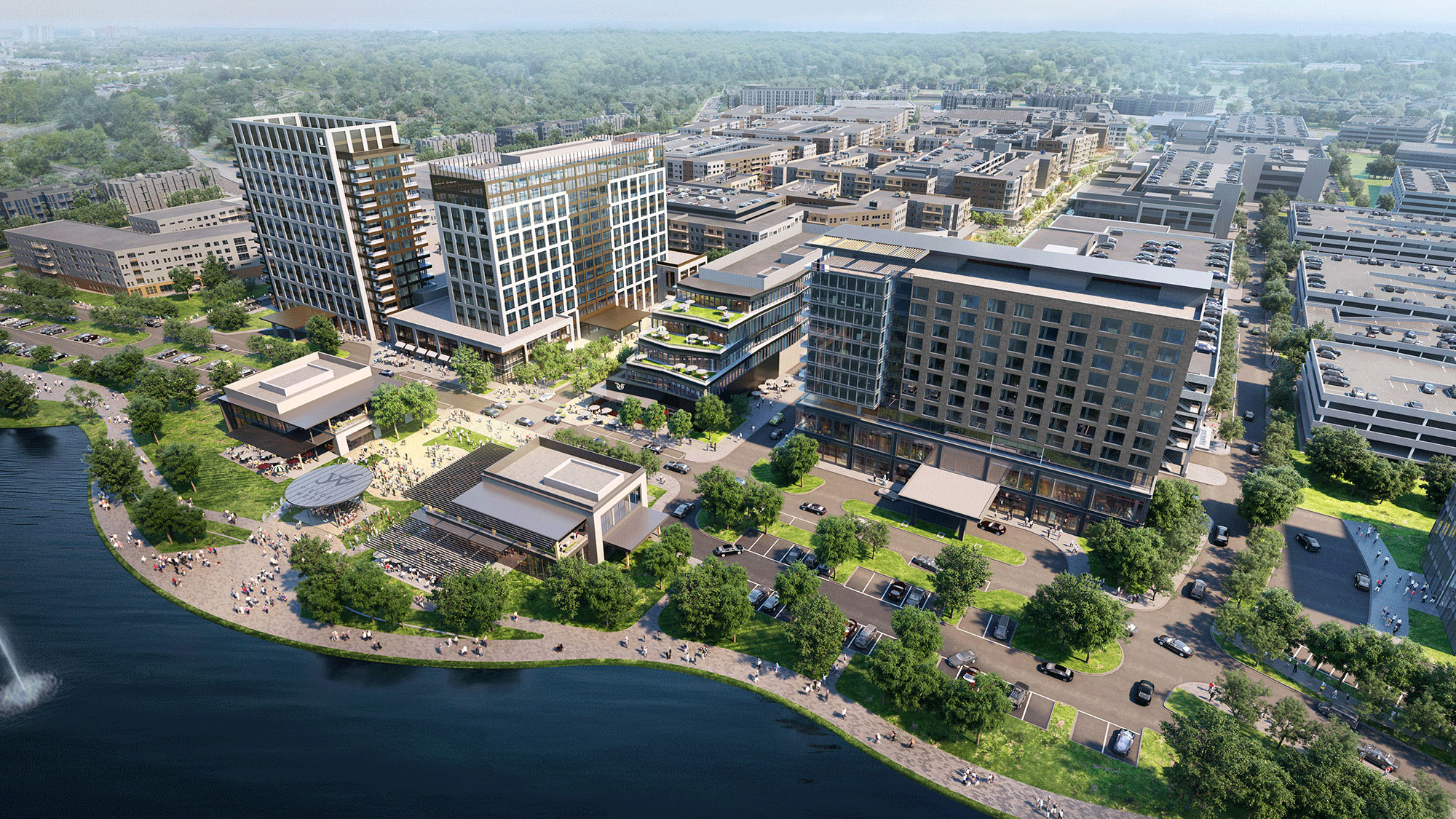
In the mind of master developer Fehmi Karahan, Legacy West in Plano and Fields West in Frisco, Texas are like sisters. His two suburban mixed-use projects share much in common but retain a few key differences, mostly due to the circumstances from which they emerged, and the lessons learned from the older sibling’s experience. They are eight miles from each other along the Dallas North Tollway that winds through the thriving suburban communities north of Dallas.
Both are open-air, vertical, mixed-use districts at least 2,000 feet in length, laid out in a series of dense urban blocks, characterized by retail and restaurants at the ground level topped by multiple levels of residential apartments and boutique offices. And both are supported by parking garages that face the primary arterial road that provides spaces for a variety of users. Legacy West was designed in 2014 and opened in 2017, while Fields West is currently under design and will break ground later this year. A lot of changes have taken place since the former’s completion, such as a world-wide pandemic and massive economic upheaval and recovery that soon followed.
Developing Fields West
When planning and designing a large retail-centered mixed-use project like Fields West, it’s vital to understand that experience trumps the transaction. The primacy of experience influenced nearly all aspects that distinguish Fields West from its older sister. It begins at the arrival of the main shopping street in its look and feel. It still retains the dense, walkable urban atmosphere that characterizes its predecessor but incorporates more greenery in the form of landscaped plazas and pocket parks.
The pandemic has resulted in a public yearning for comfortable, healthy outdoor spaces that encourage people to linger and feel a sense of belonging. This trend is evident even at the older Legacy West, where work is currently underway to add more vegetated landscape areas along the main pedestrian corridor.
The emphasis on experiences over merely shopping informs the size and proportions of the retail spaces at the ground level. Retail leasing at Fields West is strong, consistent with the current national trend, and many of the aggressively expanding up-market retail chains that populate Legacy West are also showing considerable interest. But there has been a notable shift towards shallower and smaller store footprints.
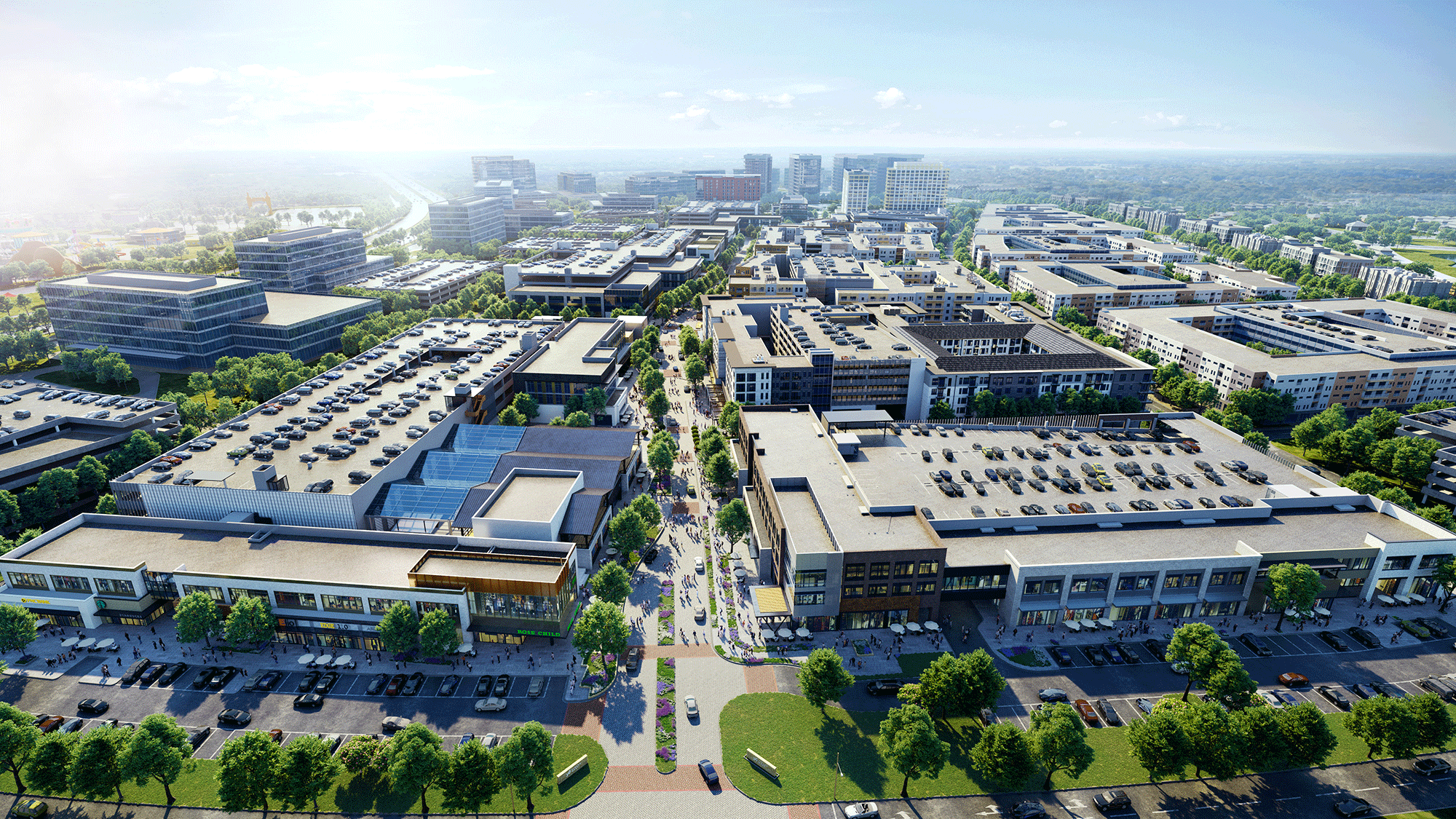
Online retail has continued to expand during the past decade and has become a supplemental channel now closely tied to the overall retail strategy of most national retailers. Soft goods stores function more as a means for shoppers to physically interact with the goods that they first saw online and less as massive containers of inventory.
The tenant mix has also evolved, in which a larger portion of the available spaces is dedicated to food and beverage. The pandemic heightened the desire to go out and create memorable social experiences, which is naturally facilitated by restaurants. With social media becoming more pervasive than ever, restaurant tenants that are currently signing leases at Fields West place special attention to the presentation of their food and one-of-a-kind branded dining atmospheres. As a result, more latitude is given to the exterior design of these marquis food and beverage tenants than was the case at Legacy West.
Department store anchors continue to vacate enclosed shopping malls for the highly sought after experiences that characterize a successful outdoor mixed-use village. Rather than massive, fortress-like symmetrical boxes surrounded by a sea of parking, this typology has evolved into smaller envelopes that better complement the pedestrian scale that defines urban mixed-use centers like Fields West.
Retail options will offer a variety of services customized to the individual needs of the consumer, such as a point of pick up for items purchased online, as well as pop-up events inside the store and in the outdoor realm.
Beyond the primacy of the experience, the tight lending environment has affected how Fields West was programmed, with less dedicated office space than would have been considered just a decade ago. Despite many businesses mandating a return to work, the number of those choosing to work remotely is still substantial.
This has depressed demand for new office space, a change that is increasingly seen as firms continue to leverage technology and respond to their employees’ desire for a stronger work-life balance. Developing a new office is a much less speculative exercise now, as financing pushes for much firmer leasing commitments before construction begins.
The Big Sister
By contrast, Legacy West enjoyed favorable financing terms that defined the business cycle during the 2010s, allowing for a higher proportion of boutique office space versus retail and being delivered to tenants long after completion. Its success in recruiting top global companies such as Boeing, Toyota, and Fidelity Investments to the area points to a major comparative advantage enjoyed by suburban mixed-use districts like Fields West.
Today’s competitive environment favors highly amenitized workplaces that offer a balance of live, work, and play. Just as commercial tenants at Legacy West chose boutique offices because of all the nearby coffee, food, and fitness amenities, Fields West is well-positioned to capture a similar caliber of tenants that are increasingly preferring more connected, walkable environments filled with abundant options.
While tenants are susceptible to constant transformation, either from technology or more acute post-pandemic effects, this programmatic flexibility between the variety of uses ensures the viability of thoughtfully designed mixed-use projects through changing market conditions. The lessons from the sustained success of Fields West’s older sister only reinforces the value of adaptability and careful placemaking in the face of challenges that inevitably arise over time.
For media inquiries, email .
